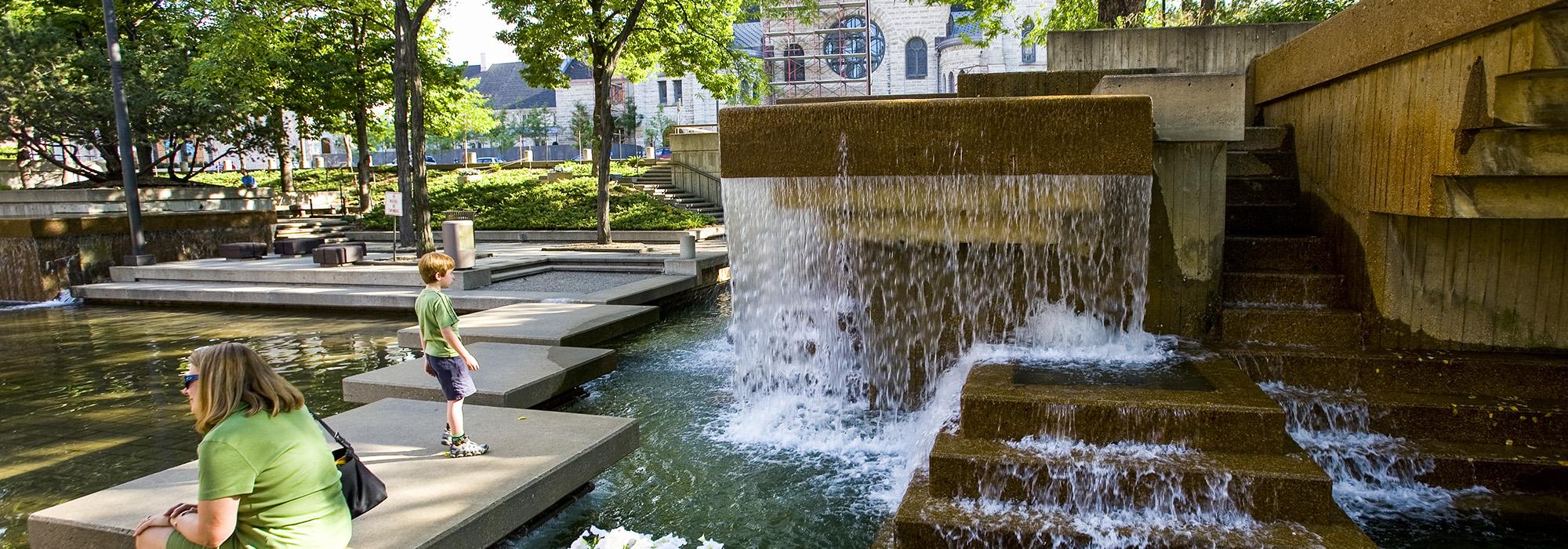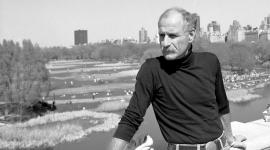The Cultural Landscape Foundation’s Pioneers Oral History series launches its third module celebrating M. Paul Friedberg
Washington, D.C. (May 4, 2009) – As part of its annual celebration of Modern design held on the first Monday in May, The Cultural Landscape Foundation (TCLF) will launch its online video documentary dedicated to the maverick Modernist practitioner, M. Paul Friedberg who shaped the Post War urban landscapes of New York City and beyond.
This interview is the third in an ongoing, online series, with the Boston‐based landscape architect, Carol Johnson and Atlanta‐based landscape architect Edward Daugherty as the first two in the series. In total, these individual modules collectively document and preserve the unique, first‐hand perspectives of renowned landscape practitioners, and makes them available free of charge to future generations of stewards, designers, and researchers. To view the Friedberg module go to: www.tclf.org/pioneers/
Paul Friedberg (b.1931) was a leading designer of new public spaces including diminutive vest‐pocket parks, municipal and corporate plazas and main street malls. Beginning with Riis Plaza in 1965 which served as a watershed event for the 34‐year old designer, and through his subsequent designs in the 1970s and 80s, like Peavey Plaza in downtown Minneapolis and the Fulton County Government Plaza in Atlanta Georgia, Friedberg continually adapted and reworked the elements one finds at Peavey. For example, paths are interspersed among pools, water features immerse visitors in the landscape, and year‐round use is encouraged, like skating at Peavey, Pershing Park in Washington D.C., or Calgary's 1987 Olympic Plaza in the winter. This flexibility was carried over from Friedberg’s earlier revolutionary playground designs as well as his continued observations of what made public spaces successful. It allowed for the interconnection of park features as a means to encourage discovery and initiate an active engagement with the urban environment.
The Pioneers Oral History series contributes to TCLF's ultimate goal of interpreting, preserving, and protecting America's designed landscape legacy through its mission of “stewardship through education.” In making these modules available, the Oral History Initiative fosters a richer, deeper appreciation for often invisible, typically little‐known, and in some instances threatened works of landscape architecture. The series format spotlights the designer’s personal and professional history, their overall design philosophy and how that approach was carried out in their most emblematic projects. As with Friedberg, each individual module will have approximately thirty clips, with each one produced as two‐to‐four minute mini‐documentaries. Richly edited, the video segments include never before seen archival footage, new photography, and on‐location videography. To date, TCLF has also videotaped Richard Haag, Lawrence Halprin, Cornelia Oberlander, and the late Robert Royston among others.
The Pioneers Oral History series is the recipient of a 2009 National Endowment for the Arts Design Arts grant. The American Society of Landscape Architects as an official education partner for the series with outreach to over 36,000 landscape architects nationwide.
The Cultural Landscape Foundation, established in 1998, is the only not‐for‐profit organization dedicated to increasing the public’s awareness of the important legacy of culturally significant landscapes and landscape features to help save and preserve them for future generations.




